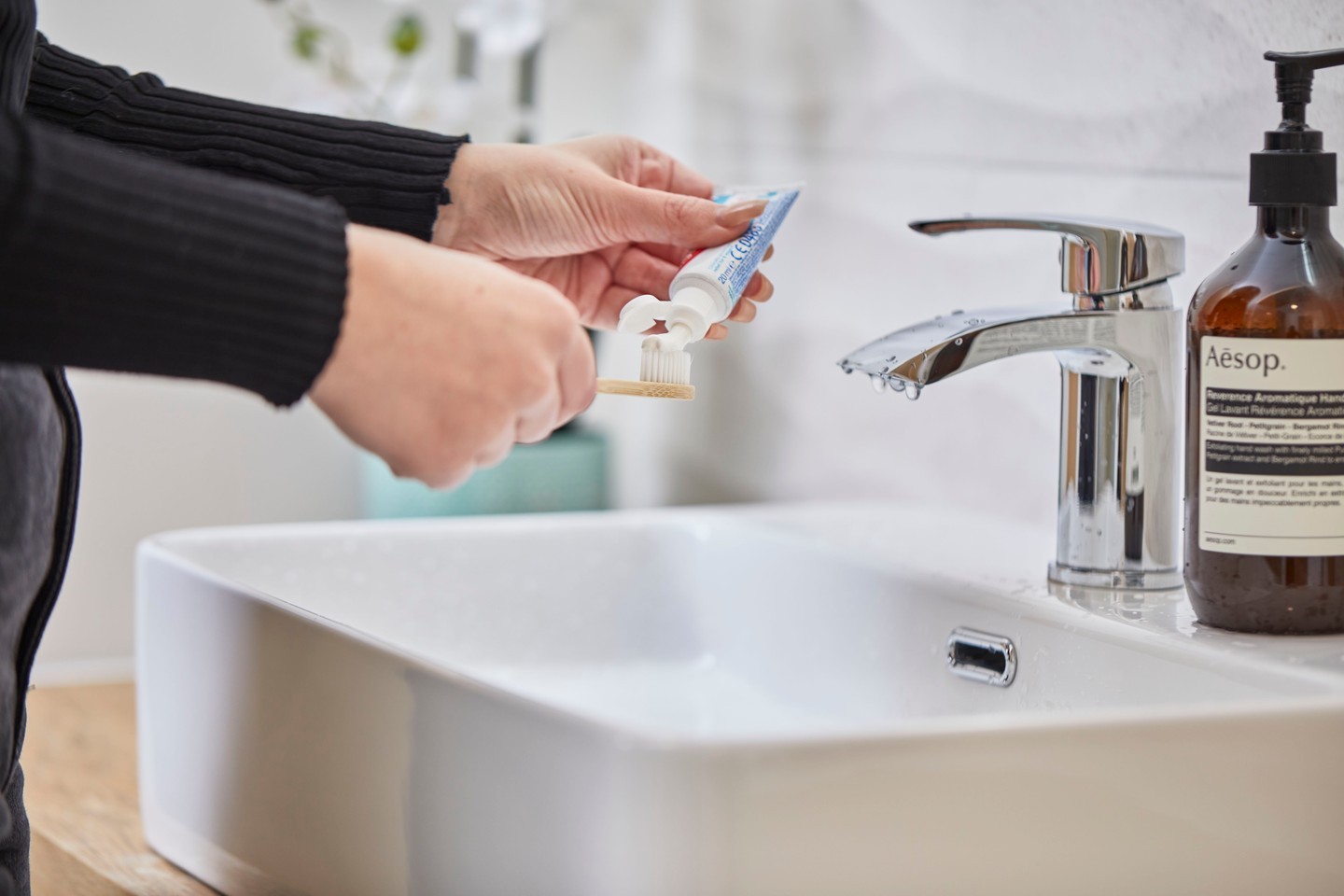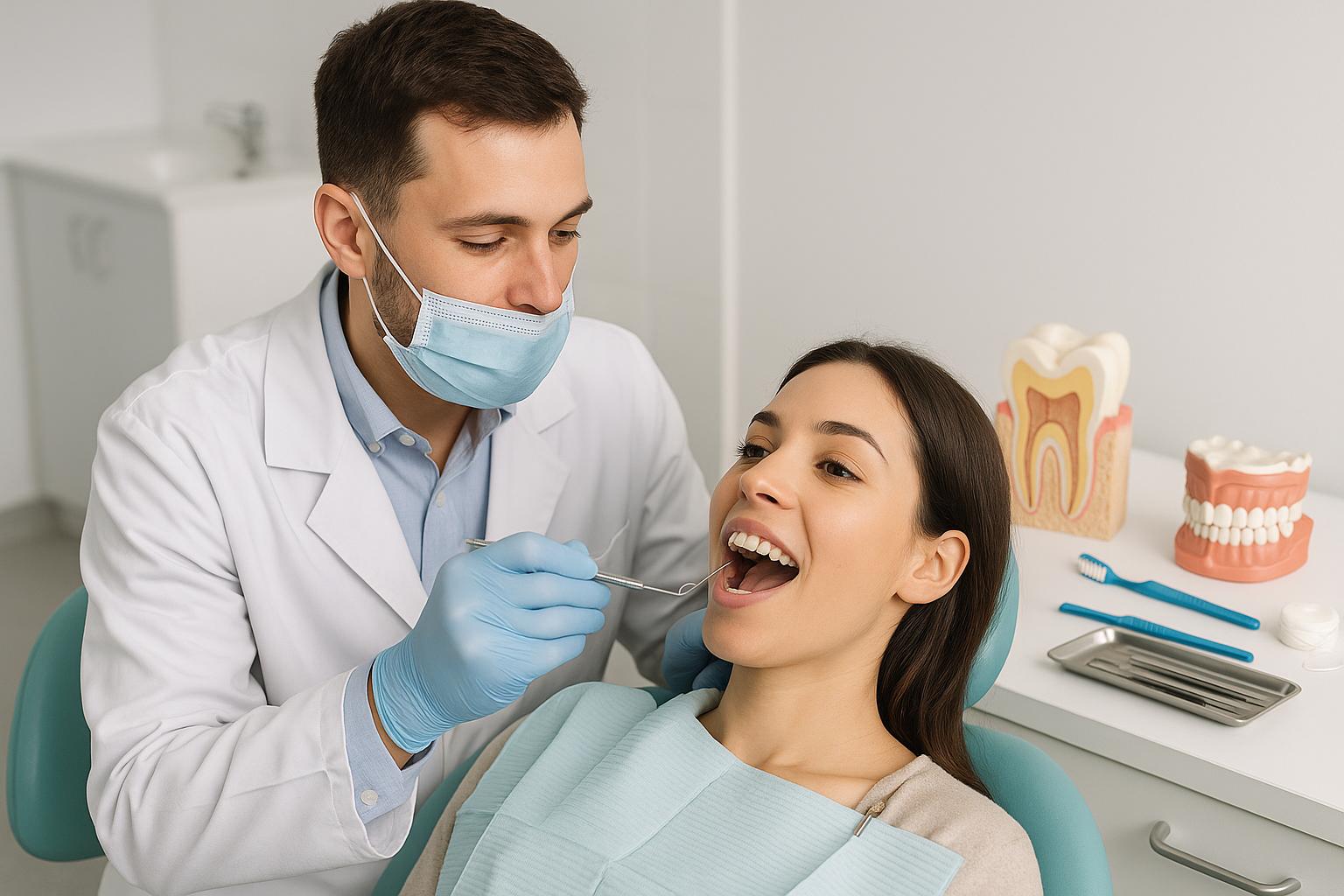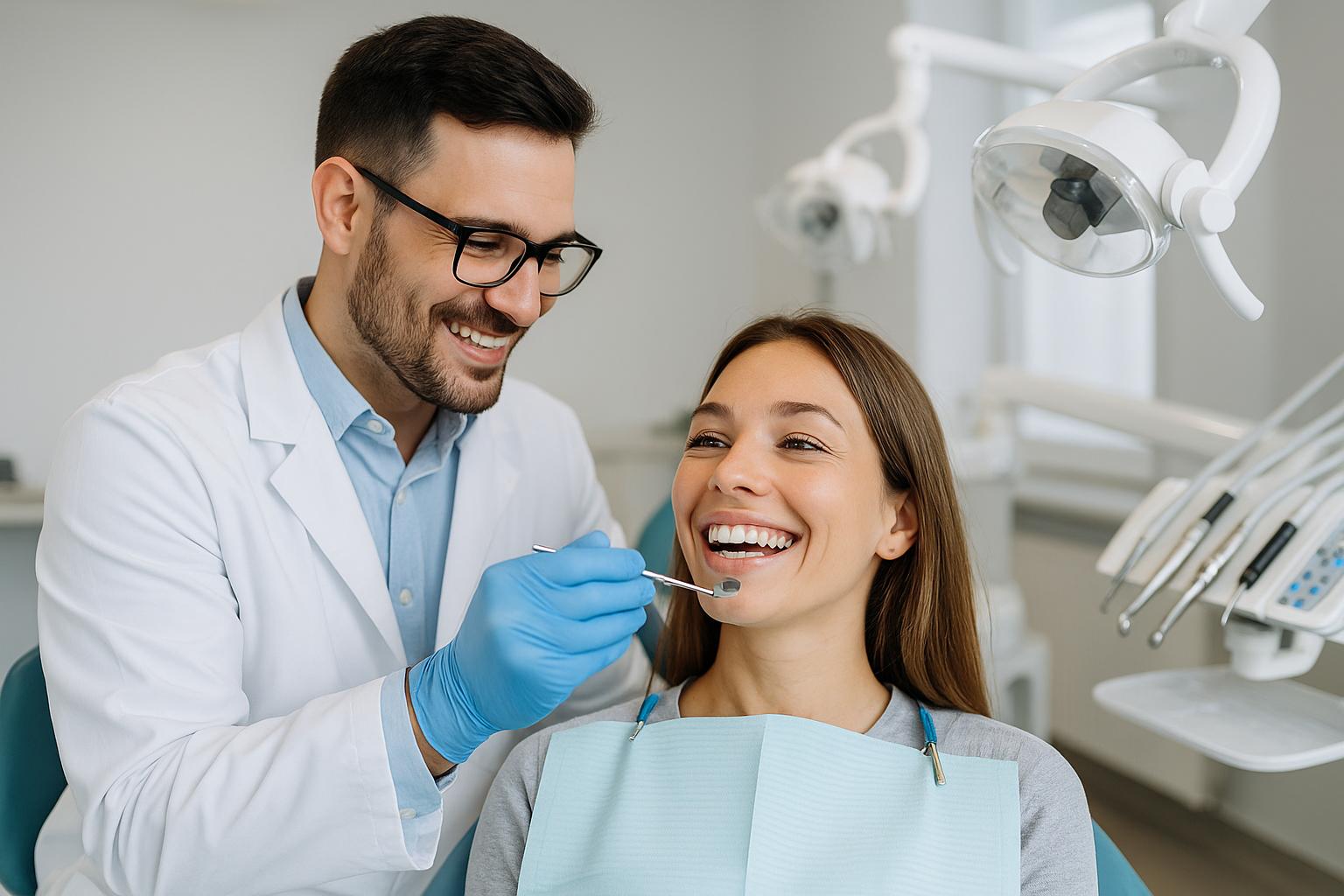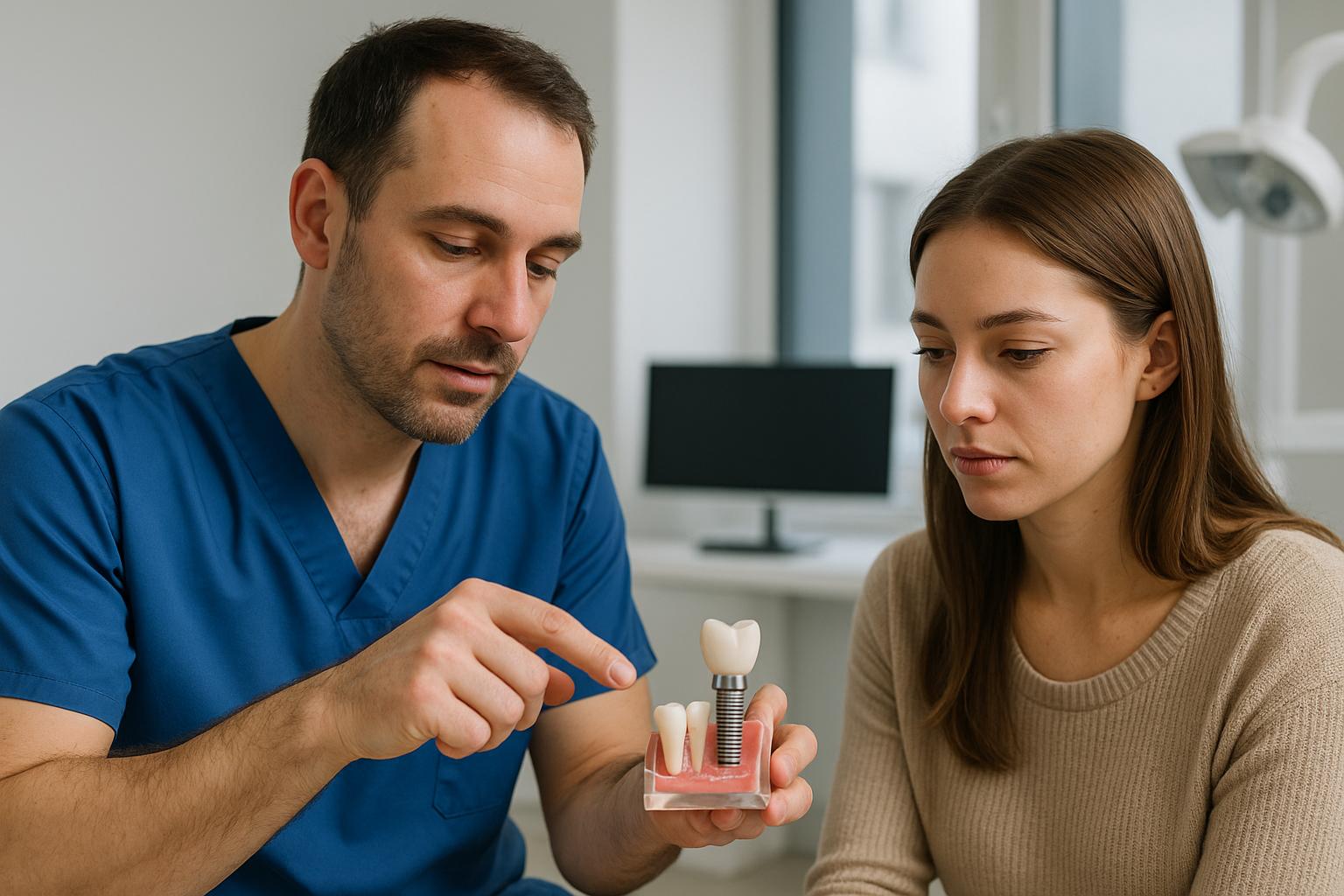The First Signs of Gum Disease
Published
20 January 2023 | 4 min read
Published
20 January 2023 | 4 min readArticle Summary
One of the most common and harmful oral health issues is gum disease, which can have a serious impact on your mouth as a whole. Avoiding it where possible is really important, but it is also vital to know the first signs so that it can be identified and treated as soon as possible, to minimise the damage it is able to make. So, we’re here to introduce the first signs of gum disease, along with the causes and how to avoid gum disease, to help you avoid, or failing that, quickly cure this oral health problem!
First Signs of Gum Disease
Bleeding Gums
The first sign of gum disease to look out for is bleeding gums, particularly when you are brushing your teeth, flossing or eating crunchy foods, like raw vegetables. Many people dismiss bleeding gums as simply brushing their teeth too hard or just something that happens every now and again, yet bleeding gums is one of the biggest indicators that you may have gum disease. So, make sure that if you are experiencing bleeding gums, you go to see your dentist.
Swollen or Sore Gums
Another one of the first signs of gum disease you should be looking for is swollen or sore gums. If you notice any swelling, pain or unusual redness around the gums, then you need to see your dentist, as healthy gums are pain free, firm and pink. Again, so many people dismiss swollen or sore gums as simply normal pain or not chewing something quite right, yet this isn’t a symptom that you should be sweeping under the carpet.
Bad Breath
Something else that is one of the first signs of gum disease is bad breath. With gum disease, bacteria grows below the gum line, which has a distinctive and foul smell which results in your breath smelling. If you have noticed poor breath, then it is important you book an appointment with your dentist. Even if it doesn’t turn out to be gum disease, your dentist will be able to help resolve the bad breath issue by suggesting different products.
Teeth Becoming Loose or Falling Out
This won’t be one of the first signs of gum disease, yet it’s an important one to note, as it is a vital sign that you need to go to your dentist. If your teeth become loose at all, or they begin falling out, it is a sign that the tissue and bone that holds the teeth in place has broken down. If you are anywhere near this point, you need to book an appointment with your dentist as soon as possible.
What Causes Gum Disease and How Can It Be Avoided
Gum disease is caused by a buildup of plaque on the teeth, and when it isn’t removed, it builds up to irritate the gums, which then eventually develops into gum disease when left untreated. This is when the first signs of gum disease start to appear.
So, the most important things you can do to avoid gum disease is to make sure you’re brushing your teeth properly twice a day and flossing to remove the plaque that inevitably builds up throughout the day.
Sometimes it is hard to remove every bit of plaque from both the surface of the teeth and between the teeth, so you also need to make sure that you are visiting your dentist and hygienist twice a year. Your dentist will be able to identify any areas for concern or notice the very first signs of gum disease that you may not have yet. When you see your hygienist at the same time, they will be able to remove any hardened plaque buildup (known as tartar), so that it can’t worsen and begin to irritate the gums.
Final Thoughts
Gum disease is a very common and very serious oral health problem, but luckily, it can largely be avoided when you are brushing properly, flossing regularly and going to see your dentist and hygienist on a regular basis. At Beyond Dental, we place a significant amount of emphasis on our preventative dentistry, helping to avoid issues as much as possible, or for those that can’t be avoided, identifying and treating them as quickly as possible. If you do notice any of the above first signs of gum disease, or you have any other concerns, it’s always best to get them checked.
If you want to make your oral health a priority, contact us today! Our team will be more than happy to tell you a bit more about us.



